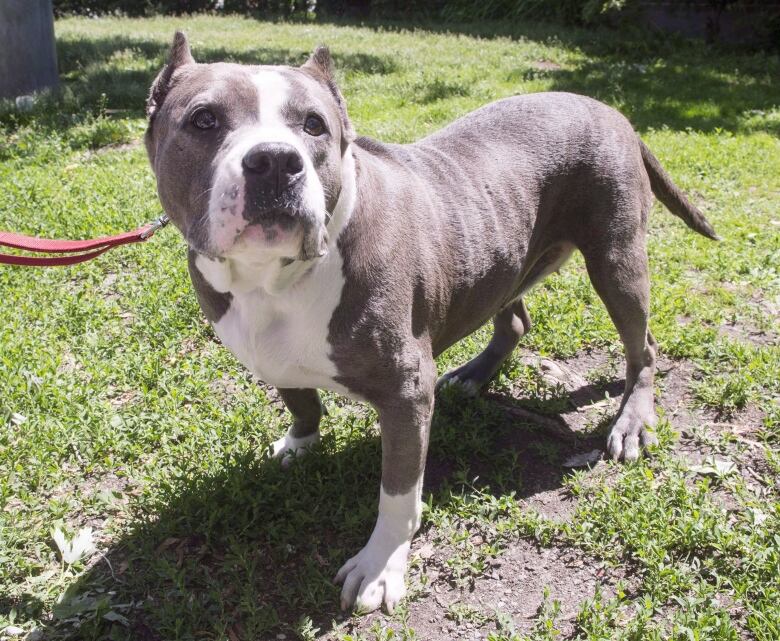Despite deadly attack near Calgary, trainer and vet argue against specific breed bans
Better controls, regulations needed for breeders

SEE MORE RECENT DEVELOPMENTS:Family mourns Alberta woman who died protecting granddaughter from pet dog
Dr. Miranda Logan is hoping local politicians don't come up with a "knee-jerk" reaction to a fatal dog attackeast of Calgary by banning pit bulls or any other kind of violent, aggressive dog.
The attack by a 50-year-old woman's boxer-pitbull cross killed the woman, and left a toddler in hospital.
- THE FIFTH ESTATE | Rebranding the pit bull: Family-friendly pet or danger to children?
"It's absolutely devastating," said Logan of the incident that occurred at a rural property near LangdonSaturday evening.
But she said any move toward a ban of certain breeds would be a mistake.
"Any dog of any breed, any age, any mix can have behavioural issues," she said.
What sparked the dog's 'extreme reaction'?
She wants to know what sparked "an extreme reaction" on the part of the boxer-pitbull cross.
Dr. Logan said the dog's medical and vaccination history and its genetic makeup could be key to better understand the reason behind the attack.
She said the dog may have suffered from a mental illness or some other condition that triggered the incident and suggesteda breed-specific ban as the answer would be inappropriate.
And Logan bristles at any suggestion that the owner the victim in this case may be to blame for the dog's behaviour.
She said in her 18 years as a veterinarian, only five cases involved the owners being responsible for their dog's aggressive behaviour.
Logan suggests it may be time to consider regulatory or stricter controls for breeders.
"It would be great if we could have open dialogue between everybody, breeders, vets, it would be great if we could have more control over who's breeding what," she said.
Saturday's attack is believed to be the first fatal dog attack in Alberta since 2012, when a newborn baby was killed by a Husky in Airdrie.
According to the City of Calgary there were 140 reported dog attacks in 2017 114 of those were confirmed bites that punctured a person's skin.
Pit bullswere involved in most of the attacks, followed by German shepherds.

Three dozen Alberta communities have restricted pit bull-type dogs, including pit bull terriers, American pit bull terriers and Staffordshire bull terriers.
The tiny village of Noblefordnorth of Lethbridge banned pit bulls and pit bull mixes in 2006.
"The council of the day just decided that a dog that had been bred specifically for fighting, which the pit bull was, really had no place in a community with as many small children as we had then and nowadays we have probably have five times as many small kids around as we did then," said Don McDowell, the village's mayor.
'I cried, I just cried'
Saturday's fatal attack hit Reanne Heustonhard. As a dog trainer, she's worked with dogs with behavioural problems for more than20 years. She said it's hard to comprehend an animal believed to be the family pet would attack with such horrificresults.
Heustonsaid she's turned away people who were looking to train their animals as guard dogs and protectors. She described some of those dogs' genetic makeup as "not sturdy."
She is also against laws that would ban a specific breed. Instead, she would like to see a crackdown on some breeders.
"What we really should be looking at is responsible breeding of a certain genetic type,"
She said she's seeing more dogs with what she said were "genetic anomalies" and they shouldn't be allowed in our community.
Bryan Labby is an enterprise reporter with CBC Calgary. If you have a good story idea or tip, you can reach him at bryan.labby@cbc.ca or on Twitter at @CBCBryan.












_(720p).jpg)


 OFFICIAL HD MUSIC VIDEO.jpg)
.jpg)



























































































